What do we eat? When do we eat? How much do we eat?
These questions have been asked over and over by people of all ages from all places. It’s the universal trio of questions that are the foundation of health — we want to know what constitutes a “healthy lifestyle.”
Unsurprisingly, there are so many answers to these questions, most of them contradicting. Before you say, “Oh, that’s because all of that information’s not true,” listen here. It’s because, in part, that everyone is different and thus requires different nutritional advice.
A couple of weeks ago, Pure Cold Press, a juice and salad bar in Brookline, held a speaker event where Marie Aspling, the founder of Boston’s first organic spa, and Maura McCartney, a nutrition and health consultant there, had a Q&A session with those present.

Photo courtesy of @purecoldpress on Instagram
I’ve always been interested in health and wellness, and I was lucky enough to be able to attend this free event. Here is what I learned:
1. Food is medicine.
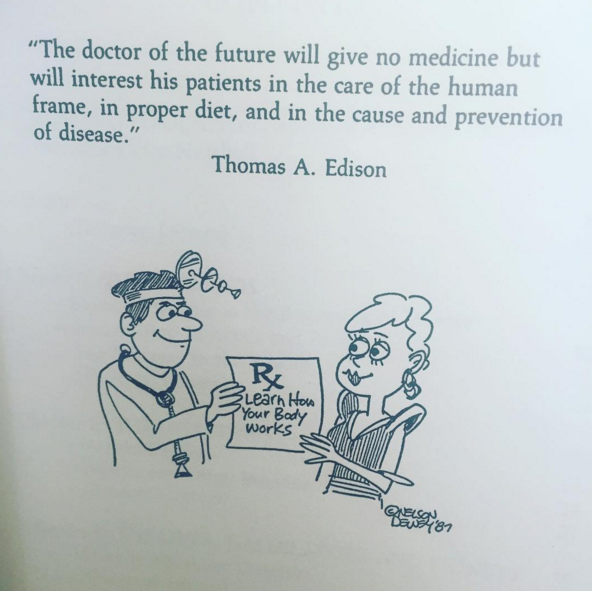
Photo courtesy of @kaylie.royallyfit on Instagram
We all want to be well and healthy, right? But instead of taking vitamins to solve all your problems, try turning to whole foods. They have the natural nutrients your body needs and have the ability to heal your body from the inside out.
2. Health is more than just the number on a scale; it’s a lifestyle.

Photo by Nancy Chen
Diets are not sustainable. There’s a reason why “yo-yo diets” are called that — you lose weight because you deprive yourself, then gain it back when you can’t control the cravings anymore. That’s why you should be focusing on changing your habits so that becoming healthy is a lifestyle change. This means looking beyond the scale and looking to improve your overall health, which includes your stress level and your relationships, rather than losing weight.
3. Focus on being satisfied rather than worrying about the calories.
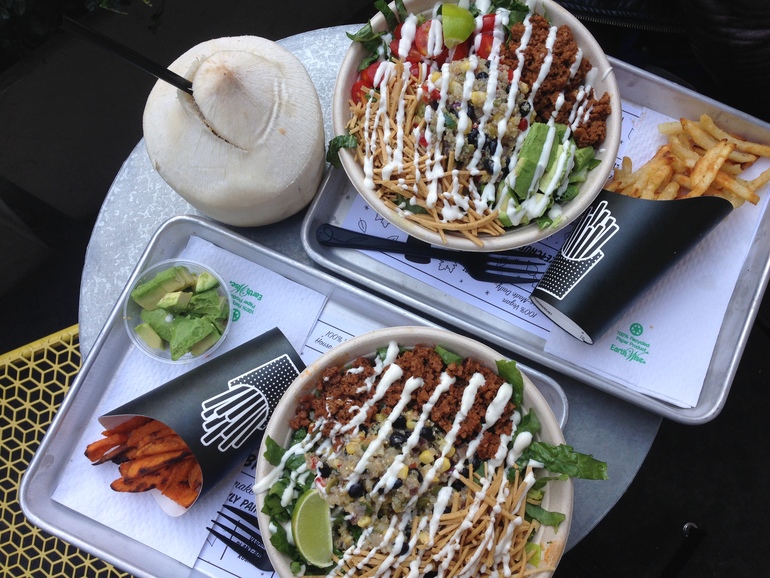
Photo by Nancy Chen
What is a calorie anyway? (Answer to the rhetorical question: it’s a unit of energy.)
Seriously, it’s just a number. Rather in focusing on the “calories in calories out” mindset a lot of people have, just focus on whether or not your food satisfies you and nourishes you, and you’ll be fine.
4. If you’re going to drink smoothies, follow certain rules.
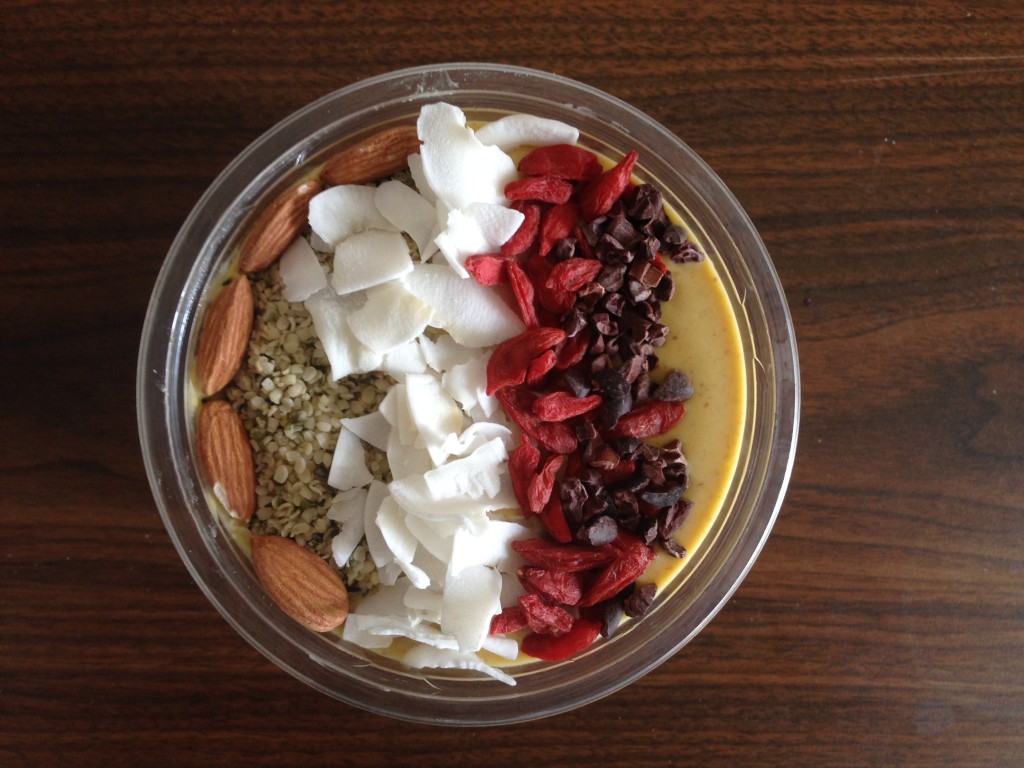
Photo by Nancy Chen
Smoothie bowls are some of my favorite things to make, and like some people, I’ve found that smoothies in the morning are easier on my digestive system since blending breaks down the nutrients in whole foods.
However, in order to prevent blood sugar spikes and getting hangry too soon after drinking them, Maura suggests that you add protein and healthy fats to your smoothie, and that you sip it slowly instead of chugging it as you run out the door.
5. Juices are supplements, not meal replacements.
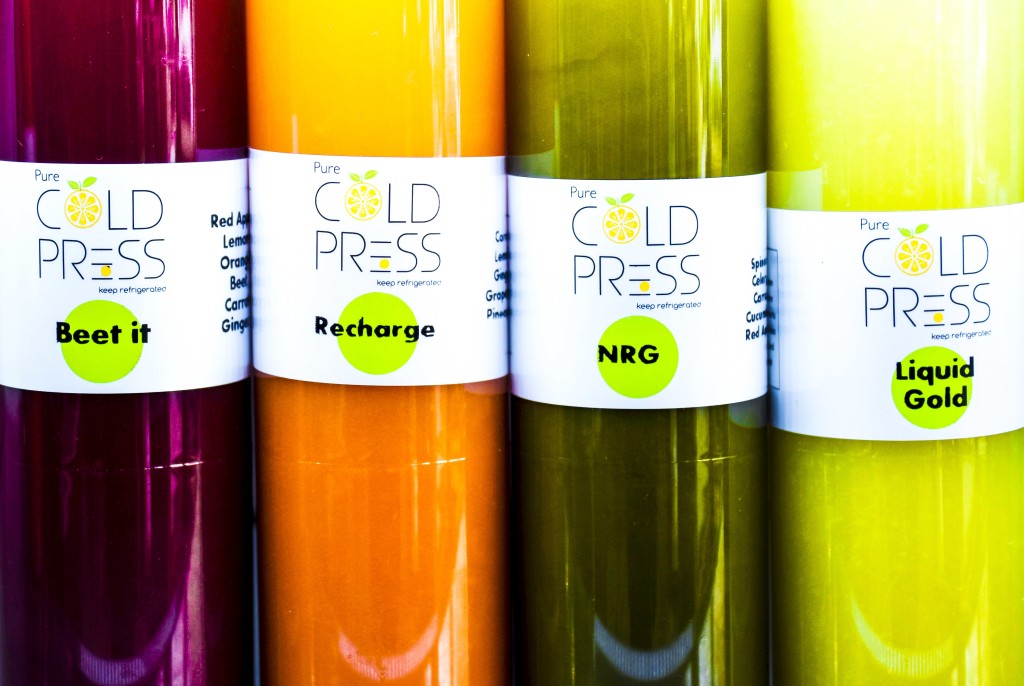
Photo by Deryal Yuksel
We all love a green juice, and I’m willing to bet that many of us have tried a juice cleanse at least once in their lives, but you can’t live off of green juices. Use them to supplement your diet, as cold pressed juice contains a lot of the nutrients that were in the original fruits and vegetables.
6. Listen to your body.
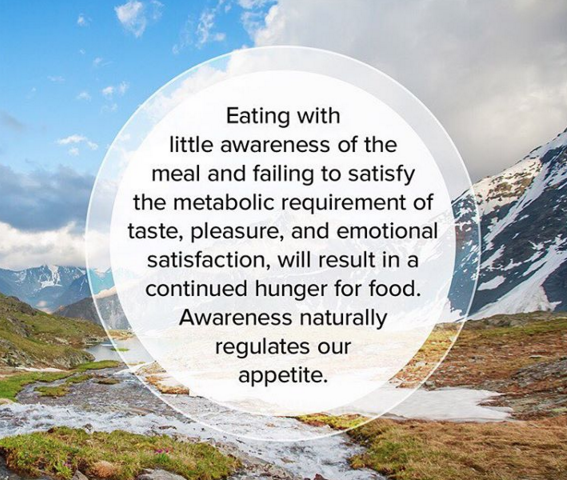
Photo courtesy of @eatingpsychology on Instagram
This is the basic concept of mindful eating. Your body knows what to do, so feed it when it’s hungry, stop when it’s full.
7. Don’t let eating stress you out.
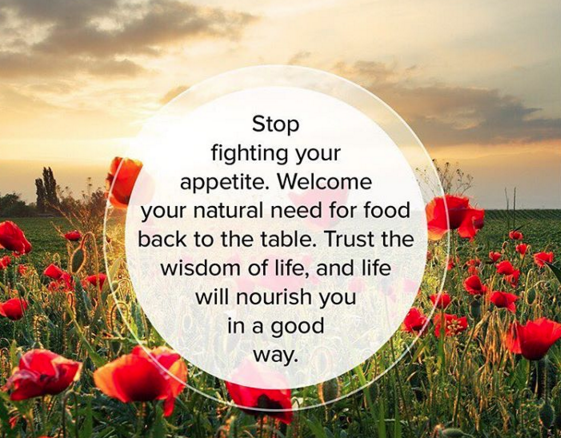
Photo courtesy of @eatingpsychology on Instagram
Eating shouldn’t be something you worry about. If you’re constantly concerned about how many calories you’re going to eat/have already eaten, how much you’re allowed to eat, or anything else along those lines, you’re thinking too much about it. Just focus on eating whole, nutrient-dense foods, and enjoy the process of eating instead of letting it be a stressor.
8. Be careful of labels.
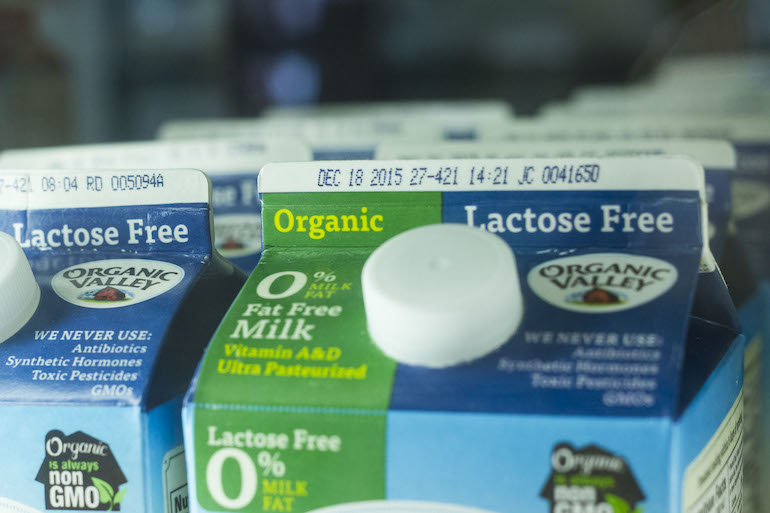
Photo by Natsuko Mazany
Many of us see the word “organic” and just assume that the entire product is organic. However, there are different categories: 100% organic, organic, made with organic ingredients, and specific organic ingredients. For dietary supplements, they are all considered “safe” by the FDA until proven unsafe, which is the opposite policy that they have for drugs, so take at your own risk.
9. What you put in your body affects things other than your weight.

Photo by Nancy Chen
Have you noticed that when you cut out sugar and/or processed foods, you feel like a whole new person? Your skin is clearer, you have more energy, and you’re happier? It’s not just some myth that health freaks tell you to get you to be healthier — it’s true.
What you put in your body is not just affecting how much you weigh, but can also heal or harm your gut, make your skin clearer or break out more, affect your mental state, and influence your social relationships.
10. You’re probably not eating enough healthy fat.
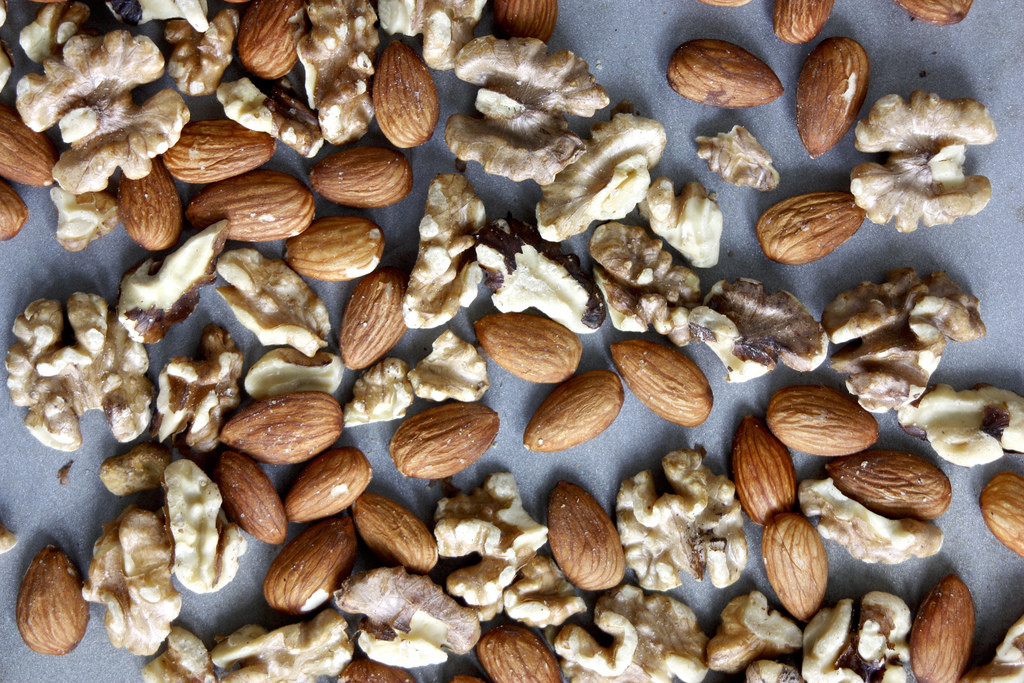
Photo by Christian Urso
Wait what? Yes, you heard that right — but the key is healthy fat. So don’t go eating all the burgers and French fries in sight, because they contain high levels of trans fat, which can increase your risk of heart disease. Choose foods high in unsaturated fat like avocados, nuts, and fatty fish. Fat is key component of feeling satisfied, which makes you eat less.
11. Even nutritionists eat chocolate.
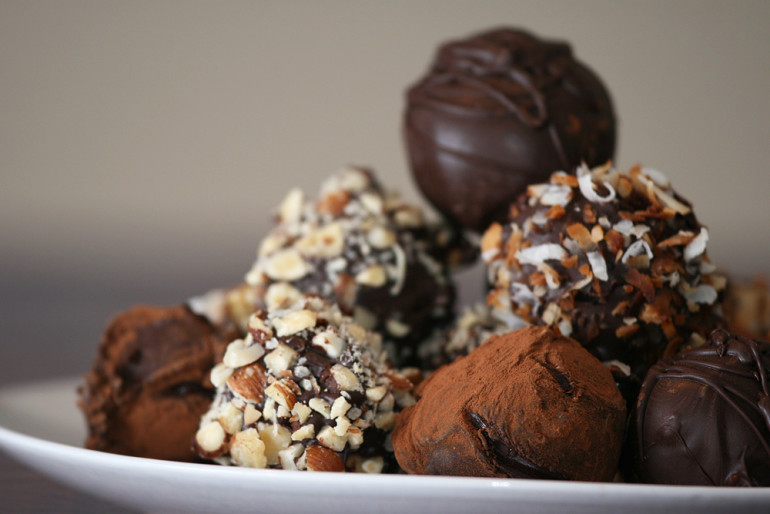
Phtoo by David Legget
Don’t deprive yourself. That only leads to you thinking more about the food, which can lead to overeating or even binging later on.
12. High levels of stress can compromise your digestive system.

GIF courtesy of britneyspearsgifs on tumblr.com
The digestive system is the “second brain of the body,” according to Maura. The gut is not only important to immunity, but also to overall health. High stress can cause your gut lining to become more permeable, resulting in leaky gut. Stress also disrupts the amount of good bacteria in your system, and the combination of the two can affect your mood, your digestive ability, and your immune system.
13. You can be sensitive to certain foods without being allergic to them.

Photo courtesy of tumblr.com
Sure, being gluten free is now the new black, but before you roll your eyes at all the girls who go gluten free to cut out carbs, know that there is actually reason behind this. Even if you aren’t allergic to a food, you can be sensitive to it. Common food sensitivities are from dairy products, gluten, and soy.
With dairy products, most people lose the ability to fully digest dairy by the time they’re adults due to genetics. They may not be lactose intolerant, but can have physical symptoms like breaking out more or experiencing headaches and/or stomachaches. The more processed a form of dairy is, the worse these symptoms can get.

Photo courtesy of forkoffgluten.com
The heavy processing of foods with gluten in them, the main group being wheat products, also causes many people to have sensitivities to it. Although few people have Celiac’s, people are increasingly having issues with the digestion of processed gluten. This doesn’t mean you have to cut out bread altogether if you don’t have an issue with it — Maura says that homemade bread or most breads in Europe (which are homemade anyway) are perfectly ok.
If you feel better cutting gluten out of your diet altogether, turn to grains like brown rice, quinoa, and amaranth, all of which have as much, if not more, fiber than grains with gluten in it.
14. Volumetrics and nutritional density are important.
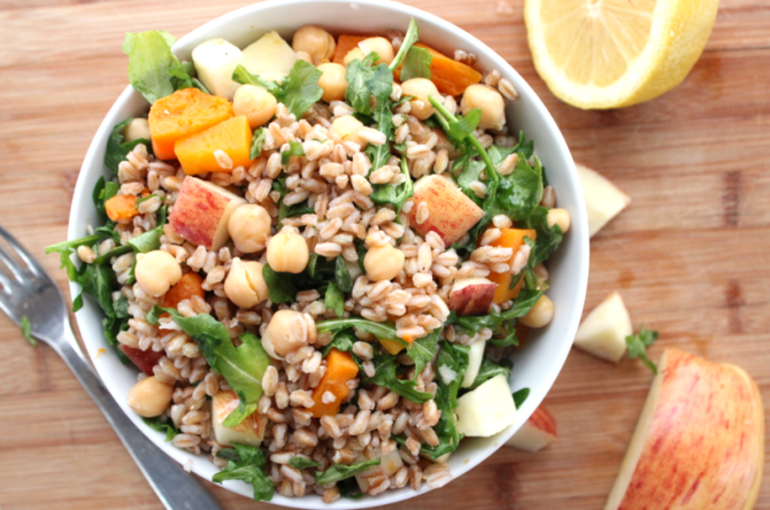
Photo by Katherine Baker
Volu-what? Basically, volumetrics just means you should be eating the whole, unprocessed version of a food. Think about it — you’re much more satisfied eating a cup of grapes vs. a cup of raisins, for example, because when you dehydrate grapes to make raisins, you lose all of the water. It’s why you’re more satisfied eating a big salad than sipping a green juice.
Nutritional density means your food packs a lot of nutrients in comparison to the number of calories it contains. High quality, pure, and whole foods tend to be the highest in nutrient density, so look for foods like brightly colored fruits and vegetables.
15. Continuously adapt what you’re eating according to how you feel.
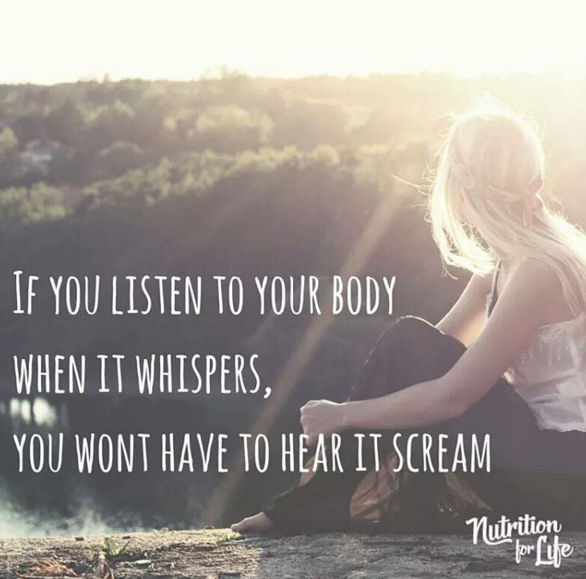
Photo courtesy of @nutrition.for.life.tas on Instagram
We’re always changing. We may find that over time, things that we used to love now make us feel less than great. If you find that you don’t feel 100% after eating something, try cutting it out of your diet for awhile and see how you feel. By continuously adapting and experimenting, you’ll not only learn more about your body, but also may discover new foods along the way.


